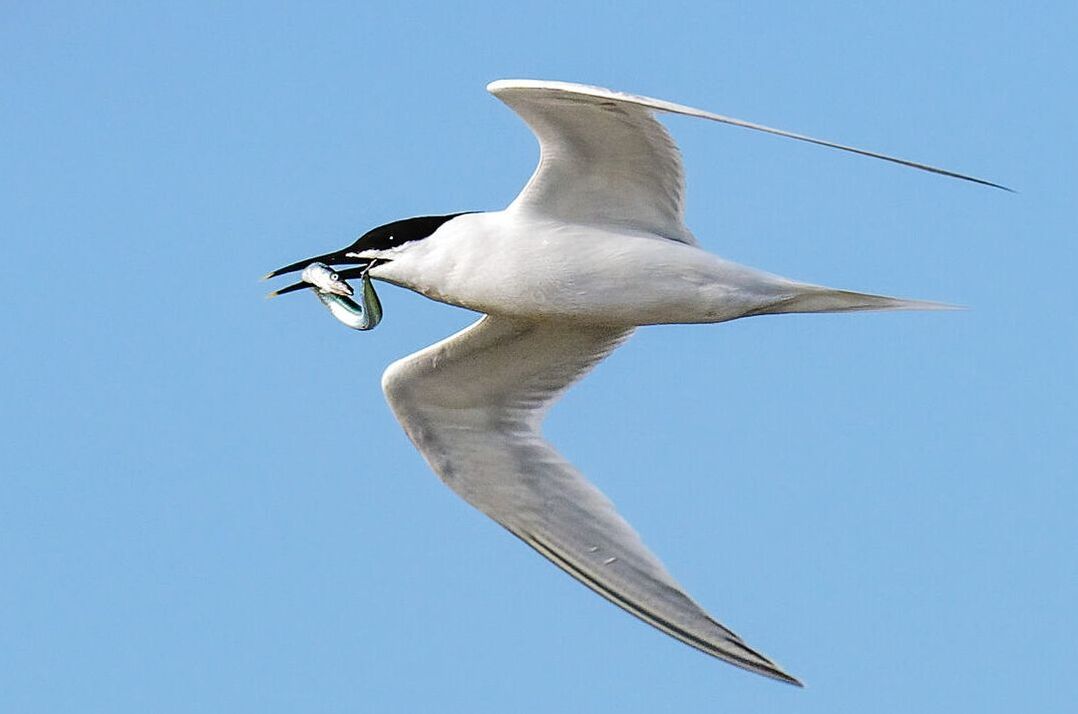|
The spectre of bird flu in wildlife may not have been in the news lately, but has not gone away. Seabird wardens are monitoring colonies anxiously as auks, terns and Gannets return from a winter at sea or the African coast. Confirmation of highly pathogenic avian influenza (HPAI) in Sandwich Terns in The Gambia is especially worrying as that’s a wintering area for many British-nesting terns. In the USA, several endangered Californian Condors have died of HPAI in recent days and the virus has reached poultry in the southernmost region of Chile, a country that has witnessed die-offs of species as diverse as Brown Pelicans and sealions. Concerns are growing about the potential impact of bird flu in the wildlife-rich Antarctic region. Meanwhile in Britain, the government is now asking for all dead birds to be reported to Defra, online or on 03459 335577.
In North Wales, Sandwich Terns are returning to their only Welsh colony at Cemlyn and seasonal firsts included Tree Pipit at RSPB South Stack, and Grasshoppers Warbler at RSPB Cors Ddyga and Llanbedr last Tuesday, Sedge Warbler at RSPB Valley Wetlands on Friday and Reed Warbler at RSPB Conwy on Monday. Hoopoes were briefly at Cemlyn and in a Rhoshirwaun garden, near Aberdaron. A Spoonbill made a one-day visit to RSPB Cors Ddyga last week, and there were equally brief appearances by an Iceland Gull at Hen Borth on the north Anglesey coast and by four Avocets at Malltraeth Cob pool. An Alpine Swift was reported over Llandudno West Shore on Sunday, a few Common Sandpipers and Little Ringed Plovers are scattered along the coast, and larger numbers of Wheatears and Willow Warblers are now arriving. The spring gathering of Great Northern Divers in Caernarfon Bay reached 34 birds on Saturday, staging here ahead of their journey to the Arctic Circle.
0 Comments
Leave a Reply. |
Bird notesA weekly update of bird sightings and news from North Wales, published in The Daily Post every Thursday. Archives
July 2024
Categories |

 RSS Feed
RSS Feed
